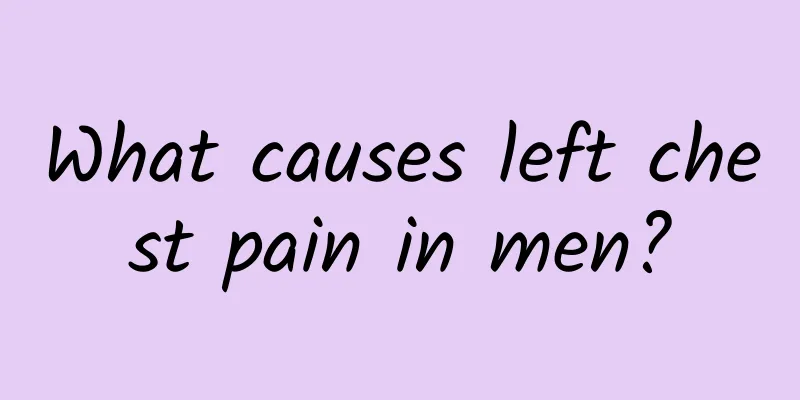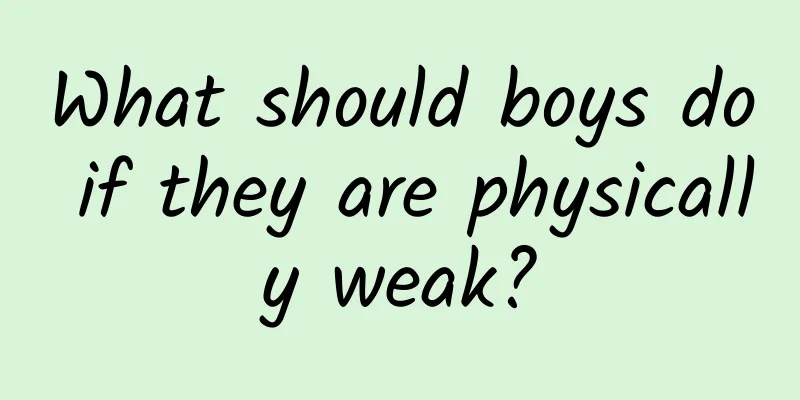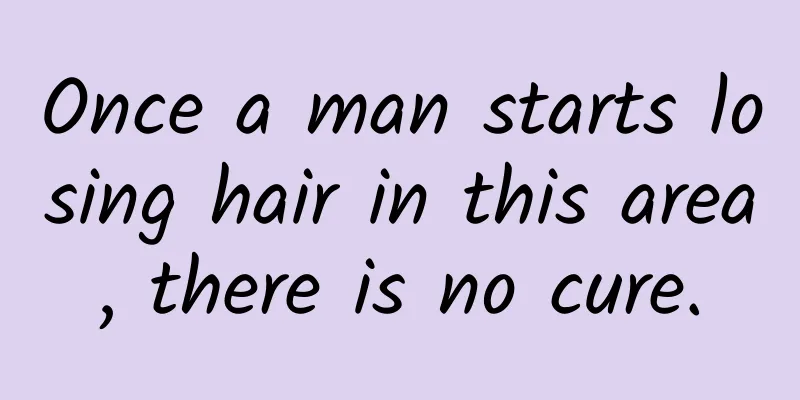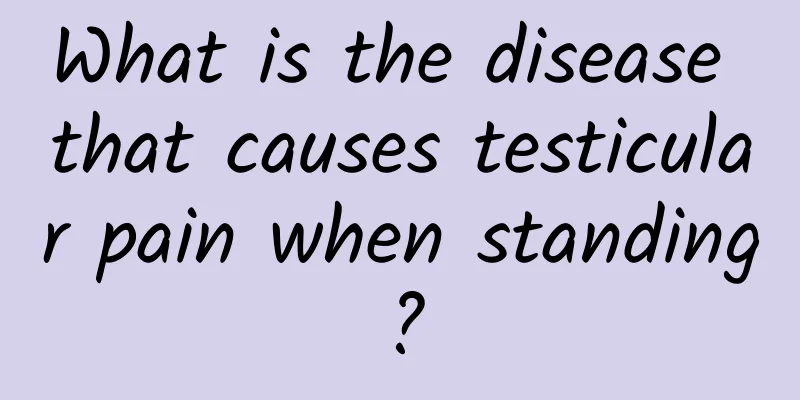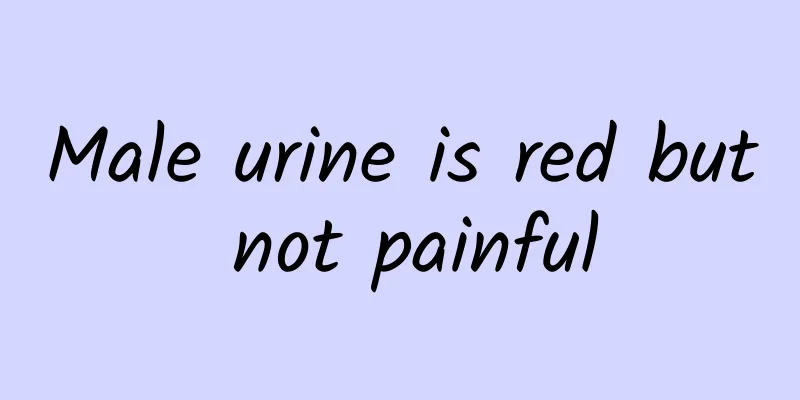Why does my right testicle pull my lower abdomen and cause pain?
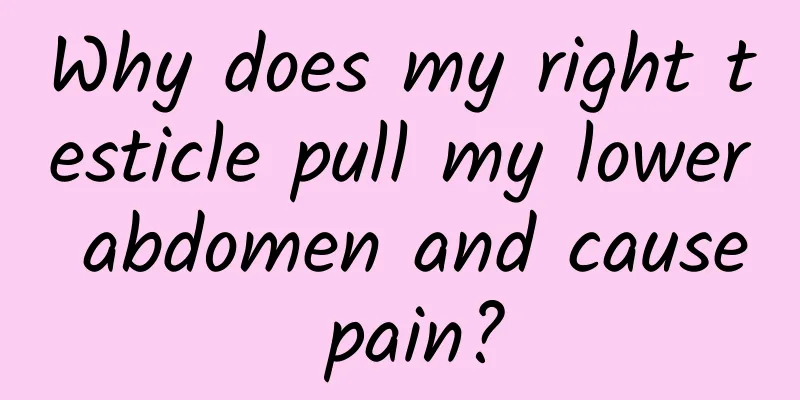
|
Diseases are very common in people's daily lives, because many factors in people's daily lives and work can cause diseases in the human body. Many male friends have encountered the situation of right testicle pulling lower abdomen pain, and most people do not know what disease caused it after this situation occurs. So, what is the reason for right testicle pulling lower abdomen pain? First, why does the right testicle pull the lower abdomen? The symptoms cannot rule out prostatitis, and prostate fluid and prostate ultrasound examination should be performed to confirm the cause. Prostatitis refers to a prostate disease caused by a variety of complex reasons, with urethral irritation and chronic pelvic pain as the main clinical manifestations. Prostatitis is a common disease in urology, ranking first among male patients under 50 years old in urology. Although the incidence of prostatitis is very high, its cause is still not very clear, especially non-bacterial prostatitis, so its treatment is mainly to improve symptoms. In 1995, the National Institutes of Health (NIH) of the United States developed a new classification method for prostatitis: Type I: equivalent to acute bacterial prostatitis in the traditional classification method, Type II: equivalent to chronic bacterial prostatitis in the traditional classification method, Type III: chronic prostatitis/chronic pelvic pain syndrome, Type IV: asymptomatic prostatitis. Among them, nonbacterial prostatitis is far more common than bacterial prostatitis. Second, only a few patients have an acute history, and most of them present with chronic, recurrent symptoms. The main pathogenic factors of type I and type II prostatitis are pathogenic infection, mainly Escherichia coli, Klebsiella, Proteus and Pseudomonas aeruginosa. Pathogens invade the prostate with urine, causing infection. Pathological anatomy confirms that prostatitis lesions are generally confined to the peripheral zone, where the glandular ducts open in the posterior urethra in the opposite direction of the vertical line of urine flow, which can easily cause urine reflux, while the glandular ducts in the central zone and transitional zone are consistent with the direction of urine flow and are not prone to infection. The prostate has as many as 15 to 30 ducts opening on both sides of the seminal colliculus, and the prostatic epithelium has a strong secretory function. The gland is small but has strong secretory function, and the duct is narrow, which causes the prostate to be compressed and blocked under the influence of multiple factors, which can easily cause congestion and secretion accumulation, thus creating conditions for infection. This is also the histological basis for the easy recurrence of prostatitis. Excessive sexual intercourse, excessive masturbation, long-term sitting, riding a bicycle, riding a horse, alcoholism, excessive spicy food, colds and chills can all become its inducing factors. The pathogenesis of type III prostatitis is unclear, and the etiology is very complex and there is widespread controversy. Most scholars believe that its main causes may be pathogen infection, urination dysfunction, mental and psychological factors, neuroendocrine factors, abnormal immune response, oxidative stress theory, lower urinary tract epithelial dysfunction, etc. There is a lack of research on the pathogenesis of type IV prostatitis, which may share some of the same causes and mechanisms as type III. Urine reflux in the prostate may be important for the occurrence of all types of prostatitis. Recent studies have found that uric acid in urine not only stimulates the prostate, but can also precipitate into stones, block the gland ducts, and serve as a shelter for bacteria. These findings can explain that prostatitis syndrome is actually a common manifestation of multiple diseases, and the clinical manifestations are complex and varied, which can produce various complications or resolve on their own. Why is my lower abdomen hurting because of the right testicle pulling it? Type I prostatitis often develops suddenly, with symptoms such as chills, fever, fatigue, and other systemic symptoms, accompanied by pain in the perineum and pubic region, frequent urination, urgency, and rectal irritation, and even acute urinary retention. Type II and Type III prostatitis have similar clinical symptoms, often with pain and abnormal urination. Regardless of the type of chronic prostatitis, similar clinical symptoms can be manifested, collectively referred to as prostatitis syndrome, including pelvic and sacral pain, abnormal urination, and sexual dysfunction. The symptoms of pelvic and sacral pain are extremely complex. The pain is usually located above the pubic bone, lumbosacral region and perineum. The radiating pain can manifest as pain in the urethra, spermatic cord, testicles, groin, and inner side of the abdomen. The pain radiates to the abdomen and resembles acute abdominal pain. The pain radiates along the urinary tract and resembles renal colic, which often leads to misdiagnosis. Abnormal urination is manifested by frequent urination, urgency, pain, difficulty urinating, bifurcated urine stream, post-urination dripping, increased frequency of nocturia, and milky white discharge from the urethra after urination or during bowel movements. Occasionally, sexual dysfunction occurs, including loss of libido, premature ejaculation, painful ejaculation, weak erection and impotence. Type IV prostatitis has no clinical symptoms, and evidence of inflammation is only found during prostate examinations. |
>>: Why does my husband feel weak the next day after sex?
Recommend
How should men reduce waist fat?
The belly is the most likely place for fat to acc...
Simple method of cooking braised pork liver. Be careful when slicing.
In the theory of traditional Chinese medicine, pi...
What are the common symptoms of gonococcal urethritis?
You may not know about gonococcal urethritis, but...
What causes pain under the left breast of a man?
When a disease occurs in any part of the body, th...
Male pubic hair acne
If male friends have acne on their pubic hair, th...
Causes of left testicular pain
Testicular bloating and pain is a common problem....
What kind of men have strong sexual function?
Every man wants to have a strong sexual function,...
The wetter this part of a man is, the more deadly it is
Many people think that sweating is the body's...
What are the symptoms of kidney deficiency in men?
Kidney deficiency is a very common disease. Kidne...
Why does it hurt when a man ejaculates?
Men's health is affected by many aspects. If ...
Can general physical exercise enhance sexual performance?
Physical exercise is essential for everyone. Regu...
What should I eat if I suffer from hair loss caused by malnutrition?
There are many reasons that can cause hair loss, ...
What is the reason for the second erection difficulty
Frequent and undisciplined sex life is likely to ...
Can I have sex if I have prostatitis?
Prostatitis is a very common male disease, and th...
What are the most nutritious foods for men? These foods nourish the kidneys and replenish sperm
In a family, men shoulder the burden of the whole ...
